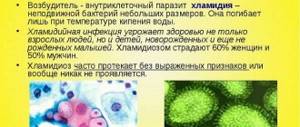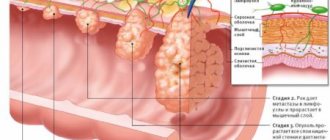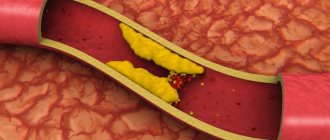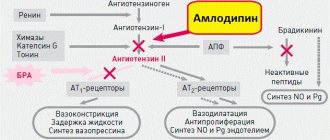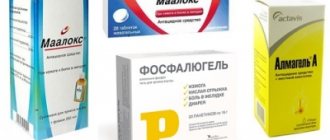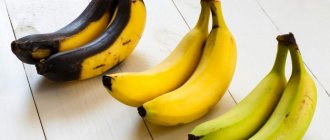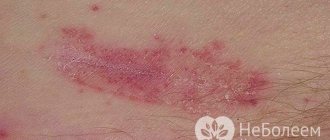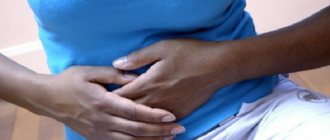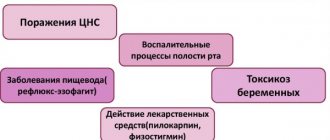Around the clock, 0.1 to 0.5 liters of various gases are released in the human intestine. This is mainly air swallowed during meals and waste products of microorganisms that populate the digestive tract. Their composition consists of methane, carbon dioxide, hydrogen, nitrogen, oxygen and hydrogen sulfide. The specific smell of gases appears due to hydrogen sulfide substances produced by bacteria. They leave the intestines silently and imperceptibly during bowel movements, if their volume does not exceed the physiological norm. Sometimes their number increases significantly, causing flatulence. This phenomenon causes severe discomfort in a person, then the question arises: how to get rid of gas formation in the intestines?
Causes of increased gas formation
The main causes of flatulence are the following:
- Nutritional. They arise due to the special properties of certain products that enhance the increased production of gases.
- Digestive. Insufficient production of enzymes does not allow food to be completely digested; as it decomposes, it produces a lot of gases.
- Mechanical. The occurrence of physical obstacles during the passage of feces: polyps, neoplasms, a large number of helminths, constipation.
- Dysbiotic. An imbalance between good and bad bacteria in the intestines often occurs when taking antibacterial drugs.
- Dynamic. It manifests itself when intestinal motility is impaired or there are abnormalities in the colon. The digestion process slows down, fermentation begins, and gas formation increases.
- Circulatory. Develops in circulatory disorders associated with diseases.
- High-rise. The influence of changes in atmospheric pressure.
- Dysphagia. It is caused by disorders of the nervous system and manifests itself in increased swallowing of air: rushing and talking while eating.
- Psychogenic. Severe stress and nervous shock.
For any cause of increased gas formation in the intestines, treatment is prescribed after diagnosis.
Causes and types
Depending on the cause, the following types of flatulence are distinguished:
- Digestive - based on enzymatic deficiency. Occurs as a result of poor diet and consumption of poor quality food. Often, the pathology of cavity digestion occurs against the background of acute or chronic ailments in the organs of the upper gastrointestinal tract (gastroduodenitis, pancreatitis, cholecystopancreatitis).
- Dysbiotic. It causes an imbalance in the intestinal microflora. Bloating occurs when gas-producing microorganisms begin to prevail over gas-consuming microorganisms.
- Mechanical. It appears after surgery on the organs of the retroperitoneum and peritoneum. Damage to the wall and adhesive disease leads to disruption of peristalsis, and in the immobile part there is an accumulation of bolus food, feces and gas. The same type of disease occurs when there is compression by a tumor or stenosis of the intestinal lumen.
- Nutritional. Increased flatulence is often observed in healthy people when consuming large quantities of certain foods. This condition can be provoked by legumes, soda and kvass, fatty meat (especially lamb), and foods high in cellulose.
- Psychogenic . Sometimes this symptom appears in response to psycho-emotional overload. They provoke a temporary spasm of smooth muscles, and stagnation forms in the intestines.
- Circulatory. It happens due to a local circulatory disorder.
- Dynamic. Occurs during an infectious process, severe intoxication, dyskinesia. In this case, motor function suffers.
- High-rise. When raised to a high altitude, the gas expands and a spasm occurs.
Treatment of gas formation in the intestines is required if the cause is any disease. But most often it is enough to simply reconsider your lifestyle and diet to get rid of unpleasant symptoms.
Symptoms of flatulence
All signs of increased gas formation are divided into two large groups. Local, these include the following symptoms:
Are common:
How to get rid of gas formation in the intestines that causes the above symptoms? To do this, you need to consult a doctor and find out the reason that caused the discomfort.
Prevention of flatulence
Intestinal problems are a common phenomenon in modern society. Poor nutrition, lack of interest in sports and voluntary physical activity often and heavily affects the processes of the digestive system.
Flatulence or increased accumulation of gases in the intestines can be cured, but it is more advisable to prevent its excessive manifestation.
Avoid excessive consumption of carbonated drinks, fatty and poorly digestible foods, lead a healthy lifestyle, drink plenty of clean water, and to avoid aerophagia, replace chewing gum with mint candies. Arrange fasting days for the stomach and leave the intestines alone for such a problem as increased gas formation.
Diseases that cause flatulence
There are a number of diseases that lead to the formation of flatulence. These include:
All these diseases, in addition to the listed symptoms, necessarily lead to constant gas formation in the intestines, the treatment of which depends on the underlying disease. In addition, flatulence occurs in pregnant women. This is due to hormonal changes and changes in the body. The hormone progesterone, which helps relax the ligaments and muscles, causes increased gas formation.
Symptoms of pathology
The clinical picture of this condition is usually pronounced. Flatulence has general, local manifestations. Local symptoms indicate a dysfunction of the intestines. This includes:
- pain, reflex spasms in the abdominal area caused by stretching of the intestinal walls;
- rumbling in the peritoneum, as the liquid component combines with gas;
- bloating;
- alternating diarrhea and constipation, frequent belching;
- nausea caused by digestive problems and the presence of toxic substances in the intestines;
- flatulation is a process accompanied by the removal of gases from the rectum. If we talk about normal limits, then flatulation can happen up to twenty times a day.
As for the general symptoms of flatulence, these include:
- insomnia;
- loss of strength and malaise;
- burning in the heart area;
- mood swings.
Diagnosis of the disease
To identify the causes of severe gas formation in the intestines and treatment, diagnostics are carried out, which includes the following measures:
For further examination you will need:
Using these methods, the causes of bloating are determined. If necessary, the doctor will prescribe a consultation with a gastroenterologist and neurologist. After making an accurate diagnosis, the necessary therapy will be prescribed and the patient will receive advice and recommendations on how to get rid of excess gas formation in the intestines.
Drug therapy methods
As already noted, with flatulence, bloating occurs in the abdomen with distension and cramping pain, loss of appetite, diarrhea or constipation. In one case, the abdomen increases significantly, the gases do not pass away, bursting pain occurs, in the other, on the contrary, there is a constant release of gases, the pain is insignificant and a strong rumbling is disturbing. To get rid of discomfort, you need to find out the cause and take appropriate measures. How to quickly get rid of gas in the intestines? Medicines for flatulence are taken to cleanse the body of harmful substances, improve intestinal microflora, and normalize the production of gases. They help improve digestion and get rid of parasites. For this purpose, there are several groups of medications, each of which is used in a specific case.
Help with flatulence
You can quickly get rid of gases in the intestines if you seek advice from a doctor. Doctors advise paying attention to the following:
- nutrition adjustments;
- impact on etiology - treatment of diseases that cause flatulence;
- restoration of normal movement of food through the intestines;
- normalization of microflora;
- removal of excess gas.
To relieve bloating, an adult should remove foods with a lot of fiber from their diet. These are cabbage (including sauerkraut), gooseberries, grapes. The ban also applies to soda, kvass, black bread, potatoes, and legumes. You should not eat a lot of sweets, especially chocolate. You can eat porridge, boiled vegetables, boiled dietary meat. Food should be easily digestible, steamed or boiled .
It is usually recommended to treat flatulence using:
- defoamers and adsorbents;
- enzyme agents and prokinetics;
- drugs that restore microflora;
- antispasmodics and analgesics for severe pain.
Enterosorbents
These medications contain substances that can quickly absorb gases and toxins. With the help of sorbents, all harmful components are removed from the body. It should be noted that it is not recommended to use such products often, because along with everything unnecessary and harmful, useful substances are also removed: vitamins and microorganisms, which then need to be compensated. How to get rid of gas and bloating? The following are considered the most popular and effective:
In relation to other agents, sorbents:
The main disadvantage is the short duration of action.
Defoamers
How to get rid of gas formation in the intestines? Carminatives are defoamers that act on gas bubbles, breaking them up and removing them from the intestines during bowel movements. They quickly eliminate the symptoms of flatulence, preventing bloating, do not enter the bloodstream, are not toxic and are completely eliminated from the body. The main drugs in this group include:
The drugs have a quick effect, but are contraindicated in cases of complete intestinal obstruction and injuries to the intestinal wall.
Prokinetics
How to quickly get rid of gas in the intestines? For this purpose, there are drugs that stimulate the excretion of gases by increasing the motor activity of the intestinal walls. These medications include:
Prokinetics have a good effect in treating bloating, but have many contraindications, so you should consult your doctor before use.
Symptoms of severe gas accumulation
The main signs of flatulence are familiar to many:
- Severe bloating of the abdomen, accompanied by a characteristic loud rumbling.
- If you swallow air excessively, symptoms such as hiccups and belching may appear. An unpleasant and putrid smell with frequent belching (not only after eating) indicates some disorders of the digestive system and the process of increased gas formation.
- A feeling of heaviness in the stomach and abdomen, along with stabbing pains that disappear after the passage of gas.
- Violation of the emptying process, constipation alternates with diarrhea, and vice versa.
Enzyme preparations
The action of these drugs improves the production of enzymes to normalize digestion. How to get rid of severe gas formation in the intestines? Taking the following remedies will help digest food completely without causing fermentation, which will not lead to flatulence:
These medications do not have a quick effect, they have a cumulative effect.
Nutritional adjustments and drug treatment
Proper nutritional adjustments and adherence to a diet will help get rid of excessive accumulation of gases in the intestines. Increased gas formation is often caused by the foods you eat and the process of eating food itself.
- You need to eat often, in small portions (5-6 times a day), not in a hurry, so as not to swallow excess air.
- In the fight against flatulence, heat treatment of the food consumed is important; stewing, baking, and steaming are ideal options.
- Fatty, smoked, exotic foods are excluded from the daily diet.
- Enrich the menu with products that do not cause fermentation and gas formation: fresh herbs, dietary meats, lean fish, white bread, porridge cooked in water.
- If there are no allergic reactions to cow's milk protein, consume large amounts of fermented milk products.
- Eliminate from your diet raw vegetables and fruits that affect the occurrence of flatulence: apples, cabbage, radishes, citrus fruits, bananas.
| Enterosorbents | Enzyme preparations | Carminatives |
| Enterosgel, Smecta, Atoxil, White Coal, Plantex | Festal, Mezim, Pancreatin, Panzinorm | Gerbion, Espumisan, Infacol, Metsil forte |
| Used to remove toxins, poisons, bacteria, gases from the gastrointestinal tract. Activated carbon, widely used for flatulence, can cause hypovitaminosis if taken for a long time. | A deficiency of enzymes necessary for the body leads to digestive disorders, which can result in increased gas formation in the intestines. Taking such drugs is due to the process of eating food in excess. | Reduce the severity of increased gas formation (flatulence). They promote the gentle removal of gases and relieve symptoms such as bloating and colic. |
| Probiotics | Antispasmodics | Prokinetics |
| Hilak forte, Bifiform, Linex | No-shpa, Drotaverine, Spasmol, Bespa | Silancetron, Peridon, Motilium |
| Substances that are not absorbed in the gastrointestinal tract, stimulating the activity of beneficial intestinal microflora, thereby have a beneficial effect on its functioning and on the removal of gases. | Medicines that reduce the tone and contractile activity of smooth muscles. Relieves pain due to excess accumulation of gases. | Medicines that enhance gastrointestinal motility and accelerate the process of moving its contents to the exit (feces, gases). |
Exercises for bloating
For a positive effect, you must adhere to the following rules:
How to get rid of increased gas formation in the intestines? To fix this problem, the following exercises will help:
Perform exercises daily, doing several approaches. They are performed separately or in combination with other types of treatment.
Traditional methods of treating severe gas formation in the intestines
For flatulence, you can use the following traditional medicine recipes:
All medications must be taken in advance with your doctor.
Fighting the disease with folk remedies
Folk recipes will tell you how to deal with gases and flatulence at home. Due to the undeveloped pharmaceuticals and medicine in the old days, our ancestors did a good job in inventing folk remedies against flatulence, aimed at eliminating and removing gases accumulated in the intestines.
The herbal decoctions used can compete with tablets and medications.
Cumin and anise seeds are a wonderful means of combating increased gas formation and have a gentle effect in getting rid of gases.
To prepare the infusion, take half a teaspoon of each type of seed and pour 250 ml. boiling water, leave for 20 minutes and strain. Take 1/3 cup before meals.
Dill seeds are an effective remedy for flatulence.
Recipe:
- Grind them to a powder;
- Pour 1 tablespoon into 250-300 ml of boiling water;
- cover with a lid and let it brew for 3 hours;
- The infusion should be divided over the whole day and taken half an hour before meals.
To prepare tinctures against gas formation, you can use dandelion; for this, grind the root of the plant, add 250 ml. not hot boiled water, cover with a lid and leave overnight. In the morning, strain and divide into 4 doses during the day , half an hour before meals.
Prevention and diet
Preventing a disease is easier than treating it. But if a problem with flatulence has arisen, then it is necessary to start by establishing a regime and adjusting the diet. How to get rid of increased gas formation in the intestines? Divide the weight of food consumed per day into five to six meals. This will improve your metabolism and reduce the formation of gases. During an exacerbation, limit or completely eliminate the consumption of the following foods:
You should not eat very hot or cold food. This negatively affects the mucous membrane of the esophagus and stomach. To prevent increased gas formation, it is recommended to steam, bake, stew, and consume boiled foods. You should not talk while eating, and you should chew your food thoroughly. A calm lifestyle without worries and stress, a correct daily routine - all this will help in the prevention and treatment of bloating and gas formation.
Diet for gas in the intestines
A specialized diet to get rid of increased gas formation excludes the following foods from the patient’s diet:
- watermelons;
- mushrooms;
- asparagus;
- kvass;
- beer;
- fatty meat (especially lamb), poultry (goose, duck), fish;
- legumes (lentils, peas, beans, chickpeas);
- milk and dairy products (if milk intolerance is present);
- grape;
- cabbage (especially sauerkraut);
- gooseberries;
- sorrel;
- onion;
- tomatoes;
- apples and pears;
- carbonated drinks (it is acceptable to drink 0.2 liters of mineral water, but you cannot drink too much);
- It is better to limit fresh vegetables and introduce them little by little, monitoring the body’s reaction;
- raisin;
- Rye bread;
- chocolate and cocoa;
- coffee;
- Exotic fruits.
What you can eat:
- Low-fat fermented milk products (ryazhenka, kefir, cottage cheese, yogurt). Many gastroenterologists recommend eating probiotic fermented milk products (Activia).
- Boiled and stewed meat, poultry, fish (can be steamed).
- Boiled, steamed or baked vegetables (potatoes, beets, carrots).
- Wheat bread with added bran.
- Porridge made from buckwheat, pearl barley or wheat, prepared without oil.
- Baked or boiled fruits.
The main rules of nutrition for flatulence:
- Calm atmosphere when eating.
- No need to drink when you eat
- You need to follow a meal schedule. Then gastric juice will be released at the right time, which will prevent gas formation.
- There is no need to chew gum, as it increases gastric motility.
- You need to eat often, but in small portions. With this diet, nutrients are broken down better and, accordingly, are absorbed to a greater extent. Then the urge to defecate will be on time, and accordingly, “unnecessary” substances will be removed from the body without having time to rot and ferment
- Food should be eaten warm; food should not be too hot or too cold (as the intestines may be irritated)
- Don't forget about foods that should not be eaten together: (salty and sweet, milk and coarse fiber). These foods are difficult to digest together.
- It is better to eat boiled rather than fried food. Stewed or steamed dishes.
- Salt should be limited to a maximum of 8 mg per day. And liquids - at least 2 liters per day. Thanks to this, feces will be removed at the right time.
If the appearance of flatulence cannot be avoided, you can take measures to get rid of bloating:
- drink an absorbent tablet: activated carbon or preparations based on it;
- brew chamomile tea to ease digestion, or prepare dill water;
- lightly massage the abdominal area in a clockwise circular motion;
- undergo a course of treatment for dysbacteriosis using special medications (recommended only on the advice of a doctor).
Doctors recommend avoiding severe overeating, eating small and often meals (up to 7 times a day), and not talking during meals (when talking while eating, air is swallowed, which then enters the intestines).
To get rid of gases in the intestines, you should adhere to a diet and follow these rules:
- eat at least 5 times a day, in small portions;
- remove fried, fatty foods, foods that promote fermentation and gas formation from the diet;
- eat fermented milk foods (cottage cheese, kefir, etc.) every day;
- include fiber in the menu (if you have constipation) or avoid it (if you have diarrhea);
- maintain a drinking regime, taking at least 2 liters of plain water per day.
It is prohibited to consume such products as: all types of legumes, products with coarse fiber and extractive substances (spinach, cabbage, apples, radishes, garlic, onions, radishes, turnips), products that cause fermentation (beer, kvass, raisins, grapes, black bread), protein foods (pork, mushrooms, lamb), milk, alcoholic and carbonated drinks. It is not recommended to consume easily digestible carbohydrates, smoked and fried foods.
The cause of intense gas formation in the intestines may be a combination of certain foods. Cannot be combined:
- fresh flour with kefir;
- dairy products with cereals;
- cereals with fresh sour vegetables and fruits.
The following factors can also trigger the appearance of gas in the intestines:
- stale food;
- eating plenty of protein foods at night: meat, fish, eggs, mushrooms;
- drinking liquid immediately after eating.
It is recommended to do fasting days. Once a week, include only one type of product in the menu, for example, boiled buckwheat or rice. A mono-diet improves intestinal cleansing, allows you to restore the functionality of the digestive tract and removes harmful toxins.
If the cause of increased gas formation in the intestines is not serious, then following a diet is a sufficient measure.
The diet helps in diagnosing gastritis, dysbacteriosis, colitis, liver diseases, enteritis, and gall bladder.


